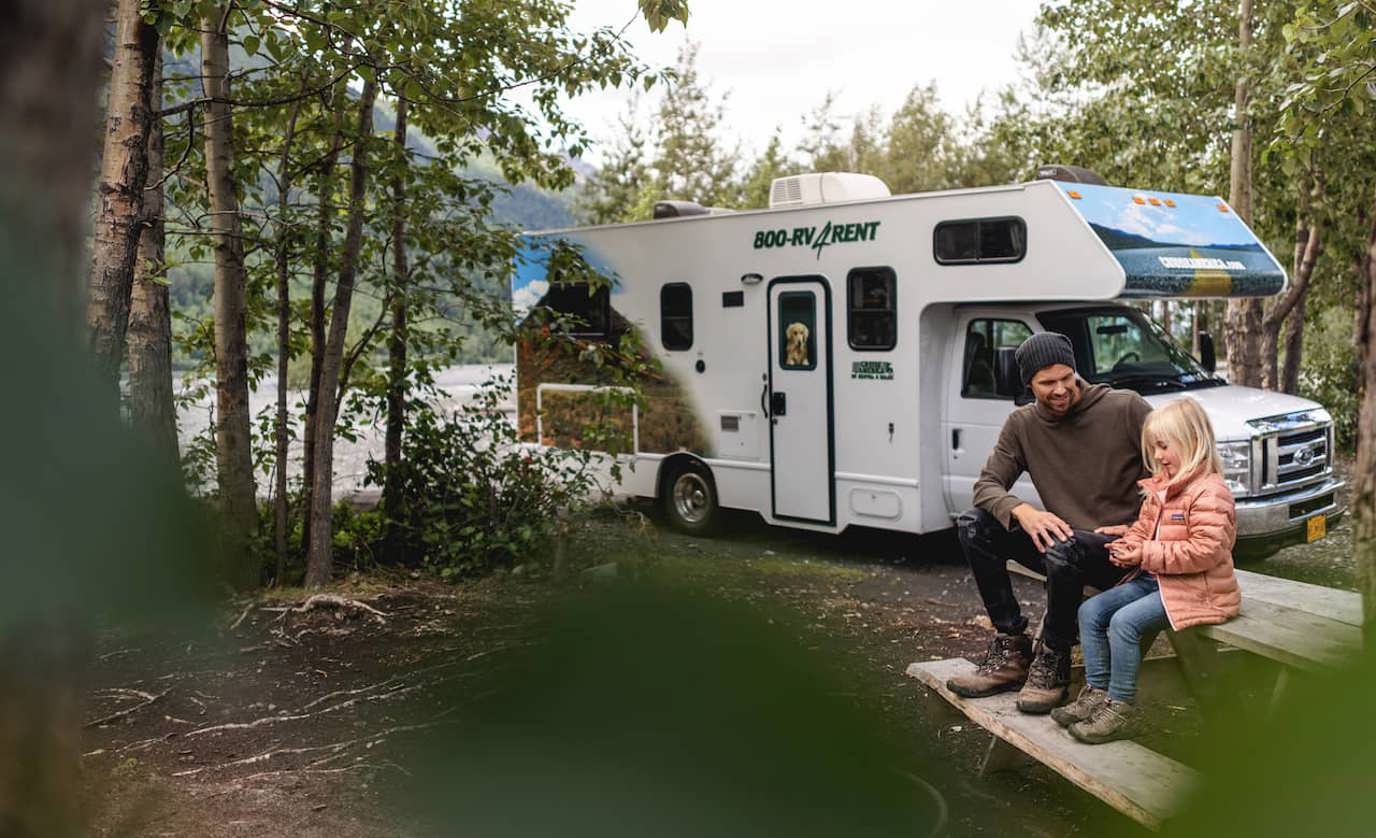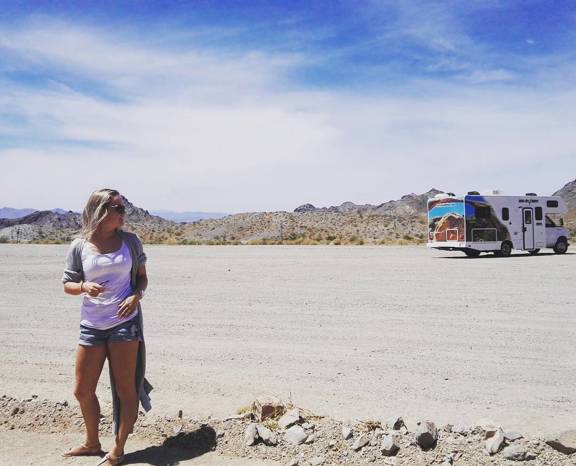
More and more people choose to be digital nomads and to live, work, and play from an RV - and for very good reason. Who wouldn’t want to wake up to a gorgeous view, sit outside to work while enjoying that view, and spend their lunch breaks exploring nature?
It used to be primarily creative jobs that had the flexibility to work remotely, but today, many 9-to-5 positions allow it. Best of all, not only is working on the road manageable, but with careful planning and organization, it can be extremely successful and very enjoyable!
These tips on how to work on the road can help you make the most of the experience.
How To Work On The Road: Top Tips for Success
Here are some of the best tips for successfully working on the road. With these, you’ll be well on your way to having a successful work-life balance while traveling by RV.
Make (and Stick to!) a Schedule
Perhaps the most important aspect of successfully working on the road is creating and following a good schedule.
Map out a typical workday and come up with a realistic schedule that you can stick to consistently. Allot time for every task, making sure to factor in things like meetings or one-time projects. Whether you use a physical planner, app, or another time-management tool, put your schedule in writing.
It’s also important to include non-work items in your schedule. We’re going to discuss downtime and self-care in more detail later, but be sure to pencil in things like travel days, RV chores, and exercise. Be as diligent about these items as work tasks — sticking to a consistent schedule is key when working and traveling in a small space!
Keep in mind that your schedule may not seem “normal” to someone else. If your job is flexible, who says you can’t work from 6:00 am to 10:00 am, head out exploring, then work again in the evening from 7:00 pm to 10:00 pm? The goal is to balance productivity with life on the road, so remember to do whatever will make you most productive.
If you’re traveling with someone who’s also trying to figure out how to work on the road, plan your schedules together and agree to hold each other accountable.
Eat the Frog
Once you have a daily schedule established, one funny-sounding but effective productivity method many remote workers rely on is called “eat the frog.”
A “frog” is the most important, biggest, or least desirable task on your to-do list. Using this strategy, you’ll tackle frogs first. Research shows that when people focus on smaller, easier tasks, the difficult ones (the frogs) tend to pile up and become even more difficult.
Each day, prioritize 2-3 frogs. They could be anything from a big deadline to an uncomfortable conversation, but the idea is that if you complete them early in the day, you’ll feel accomplished and energized, making you even more productive.
Get Connected
Technology is a tremendous factor when working on the road. Not only do you need access to it, but you need consistent, reliable access to it.
Your specific setup is unique to you and your job, but it’s safe to say that you need a newer-model laptop and access to the internet, at the very minimum.
You may be able to get by with using your cell phone as a hotspot, but many remote
workers need something much more substantial. Other internet connectivity options to consider include Wi-Fi signal boosters and StarLink.
While StarLink is the most expensive option, it also provides the fastest, most reliable coverage, offering enough speed and bandwidth to handle Zoom calls and streaming.
Create a Dedicated Workspace
Working in PJs from bed sounds great in theory, but it can be difficult to get into “work mode” and be productive. Distractions abound, and you don’t have the opportunity to mentally prepare for the workday like you would if you commuted to work.
Establishing a dedicated work area in your living arrangements solves these problems. Whether it’s the dinette table, a picnic table at camp, or a coffee shop, creating an office atmosphere to work in is a game-changer.
A room with a door is ideal, but that’s not always realistic working on the road. There are many affordable DIY RV renovation projects to create a small office, but even if you can’t do that, you can eliminate distractions from your workspace and treat it like a “real” office.
Take breaks and eat somewhere else, and communicate to those you’re traveling with that when you’re there, you’re at work. Ask them not to chat with you or turn on the TV if it’s within eyesight, and consider wearing noise-canceling headphones while you work.
Over-communicate and Set Boundaries
Communication is crucial in how to work on the road, as laying out exactly what to expect can help things run smoothly.
Tell your employer and/or clients about where you are and share your daily schedule. Being proactive shows that work is a priority and lays clear expectations about when you’ll answer emails, take meetings, and deliver deadlines. Along the same lines, anyone you’re traveling with should also know what to expect.
It’s just as important to establish boundaries about these things. If you have set working hours, don’t feel pressured to check emails at night. In reverse, make sure your family or partner knows that work time means work time, and the “fun” stuff will be outside of those hours.
Schedule Downtime
Speaking of fun stuff, like your work schedule, it’s important to prioritize things you want to do and see when you’re working on the road. After all, that’s one of the main reasons you wanted to do it in the first place!
Having something to look forward to helps you be more productive with work. Plus, having a plan helps you get the most out of a particular place, ensuring you see everything on your list.
You can also make deals with yourself outside of your regular schedule. For example, if you finish project X, you can go enjoy Y. These “deals” may motivate you even more!
Prioritize Self-care
Piggybacking on the importance of scheduling downtime, self-care is essential when working on the road. Especially if you live in an RV full-time or for long stretches, it’s easy to lose yourself to some degree and feel like you never get a break from work, which could lead to burnout.
Keeping your proverbial cup filled can help. Feeling personally fulfilled can prevent you from getting overwhelmed and risking your work performance suffering or not being present with your partner or family during non-work hours.
To do this, prioritize your physical and mental health. Eat well, get plenty of sleep, exercise regularly, get fresh air and sunshine, schedule several small breaks in your workday, and treat yourself to something just for you occasionally, whether it’s a fancy coffee drink, watching a favorite show, going on a solo hike, taking a nap, or flipping through a magazine.
Be Flexible
Finally, one of the biggest keys to successfully working on the road is being flexible. Things rarely always go according to plan, even when you’re home or working a traditional 9-to-5 job, so it’s even more likely that things will occasionally go wrong while you’re traveling.
You can’t prevent that, but you can have a backup plan for when things go sideways. Some days that may mean waking up extremely early or going to bed super late to finish work because an opportunity came up that you couldn’t say no to. It may involve working in a grocery store parking lot because your internet went out or having to swap rental vehicles because there was a problem with yours.
With that in mind, it’s also a good idea to have a readily-accessible emergency fund. Especially if something unexpected pops up on a big workday, the last thing you want to do is spend even more time gathering up money to fix it!
Did you know Cruise America offers long-term RV rentals? This is a fantastic way to test out the RV lifestyle and see if working on the road is realistic for you!





